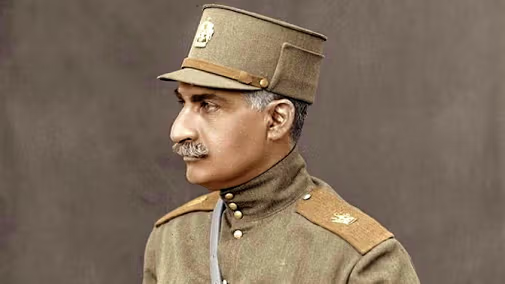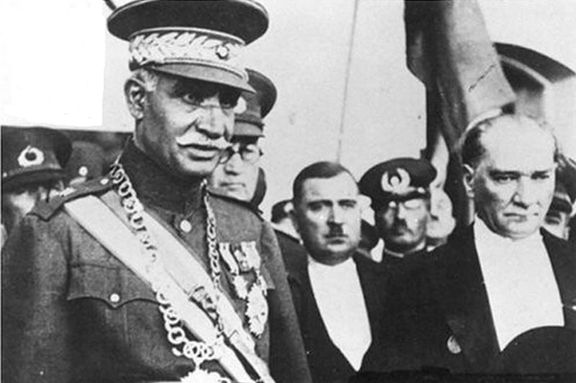In A surprising Move A Website In Iran Marks Reza Shah’s Birthday

In an elaborate change of policy of not praising Iran's former monarchs, a website in Iran surprisingly covered the birthday of Reza Shah Pahlavi on March 15.

In an elaborate change of policy of not praising Iran's former monarchs, a website in Iran surprisingly covered the birthday of Reza Shah Pahlavi on March 15.
Moderate news website Rouydad24 carried a long illustrated feature about the king, calling him the country’s modernizer, in what was a rare if not an unprecedented event. The article was titled, "Reza Shah Pahlavi, the founder of modern Iran and the man who initiated the military's intervention in economy!" The second part of the headline was probably aimed at striking a balance in coverage so that the king would not be portrayed entirely in a good light.
In fact, it is the Revolutionary Guard which is often criticized for its involvement in business, while Reza Shah was not known for allowing corruption or business activity by the military.
Since the 1979 revolution, the clerics running the Islamic Republic have been sworn enemies of not only the last dynasty in Iran but have generally tried to portray all kings in a bad light.
Reza Shah, born on March 15, 1878, in Savadkooh in Mazandaran Province as an ordinary individual was named the Shah of Iran by parliament in 1925 and resigned in favor of his son, Shah Mohammad Reza Pahlavi, in 1941 under pressure from the occupying allied forces who accused him of favoring Germany in WW2. He died in exile in South Africa in 1945.

Meanwhile, the popular Twitter account @Mazandaran – Iran, which usually covers stories about the province, its people and culture, carried two posts on the occasion of Reza Shah's birthday, in which it described the monarch as "the founder of the Pahlavi dynasty."
The Twitter account wrote that "Various judgements have been made about the performance of Reza Shah's government, but regardless of those judgements, one should note that he contributed a lot to progress and cultural activities with the intention of developing and reviving Iran and creating a modern Iran, although he also had some mistakes and went too far in some of his actions."
If this level of praise for the former monarch looks unprecedented in Iran, more of this can be seen in the article on Rouydad24 website. The website cited 8 authoritative books on the life and times of Reza Shah and carried several rare photos of him dating back to various junctures of his life. Meanwhile, to be on the safe side, the website balanced its praise with criticism cited from the same sources.

For instance, it quoted US envoy Arthur Millspaugh as saying that by excessive taxing of landowners he made the peasants poorer and by creating a new class of affluent Iranians, in fact he lowered the living standards of the masses. At the same time, other authors generally praised Reza Shah for bringing into Iran many manifestations of modern civilization such as universities, a European type of judicial system, a new educational system, ridding Iranian women of the burden of hijab, establishing the South to North railways and bringing order to a vast country where chaos ruled before he came to power.
The report quoted the king's critics as saying that he accumulated a huge wealth during his reign. At the same time, it acknowledged Reza Shah's role in turning a backward country into a modern state.
Although criticism of Reza Shah and undermining of his achievements has continued throughout the past 43 years, since 2017 many Iranians, particularly the young generation, have started praising him as a national hero during massive antigovernmental protests.
Whether it is sheer accident that Iranian media paid tribute to the king, or the Iranian government decided there is no harm in partly acknowledging the grandeur of a popular dead hero while still criticizing him, is still not clear. However, one can hardly find a reason why Tehran may have decided to allow government-controlled media to even mention a king’s birthday except to mollify the younger generation.